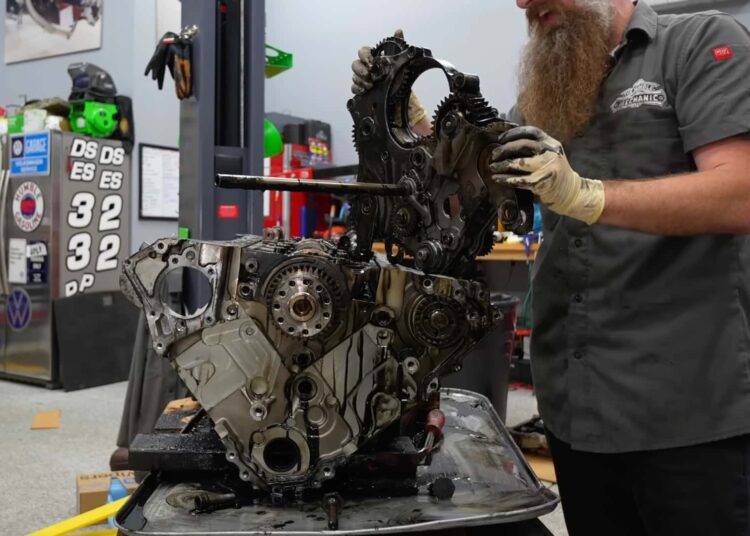Once upon a time, Volkswagen built V-10 engines for its road cars. Throughout the 2000s the German company, formerly known for its popular diesel models, sold its full-size Touareg SUV with a twin-Turbo V-10 TDI. It was pulled from the US market in 2008 because it could no longer pass emissions tests, and has since become a mythical powertrain for the VW obsessed. A teardown reveals just how much effort engineers put into this engine to make it work.
The HumbleMechanic YouTube channel bought one of these Touareg V10 TDIs just so they could pull the engine and take it apart. And before you leave an angry comment, the engine was junk, as it had worn cams and would’ve cost too much to fix.
Like most aged German-sourced motors, this one, at first glance, looks like a hunk of metal covered in hoses and oil stains. But look closer, and you’ll see none of the normal accessories normally found at the front of the engine—things like the power steering pump, the alternator, or the A/C compressor—are missing. They’ve been moved alongside the block or in the valley of the V shape. Instead of being powered by a serpentine belt, they’re powered by metal gears at the back of the engine.
The V10 TDI uses gears to drive its timing, rather than a belt or a chain. It also uses gears to drive its accessories. This is some real race car stuff, used in a decidedly pedestrian SUV. Volkswagen was on another level with this in the mid-2000s.
Host Charles Sanville highlights the geartrain found at the rear of the V-10 towards the end of the video, after what seems like hours of disassembly to remove wiring harnesses, hoses, pipes, and emissions equipment. In all, Sanville says the engine uses 20 individual gears to spin the cams and all of the accessories.
That kind of setup is usually unheard of in anything other than pure racing applications. Plus, the gear setup itself looks incredibly cool. We doubt Volkswagen will ever go back to engineering ridiculous stuff like this for production, but it’s nice to revisit the greatness that once was.
Read the full article here



























Discussion about this post